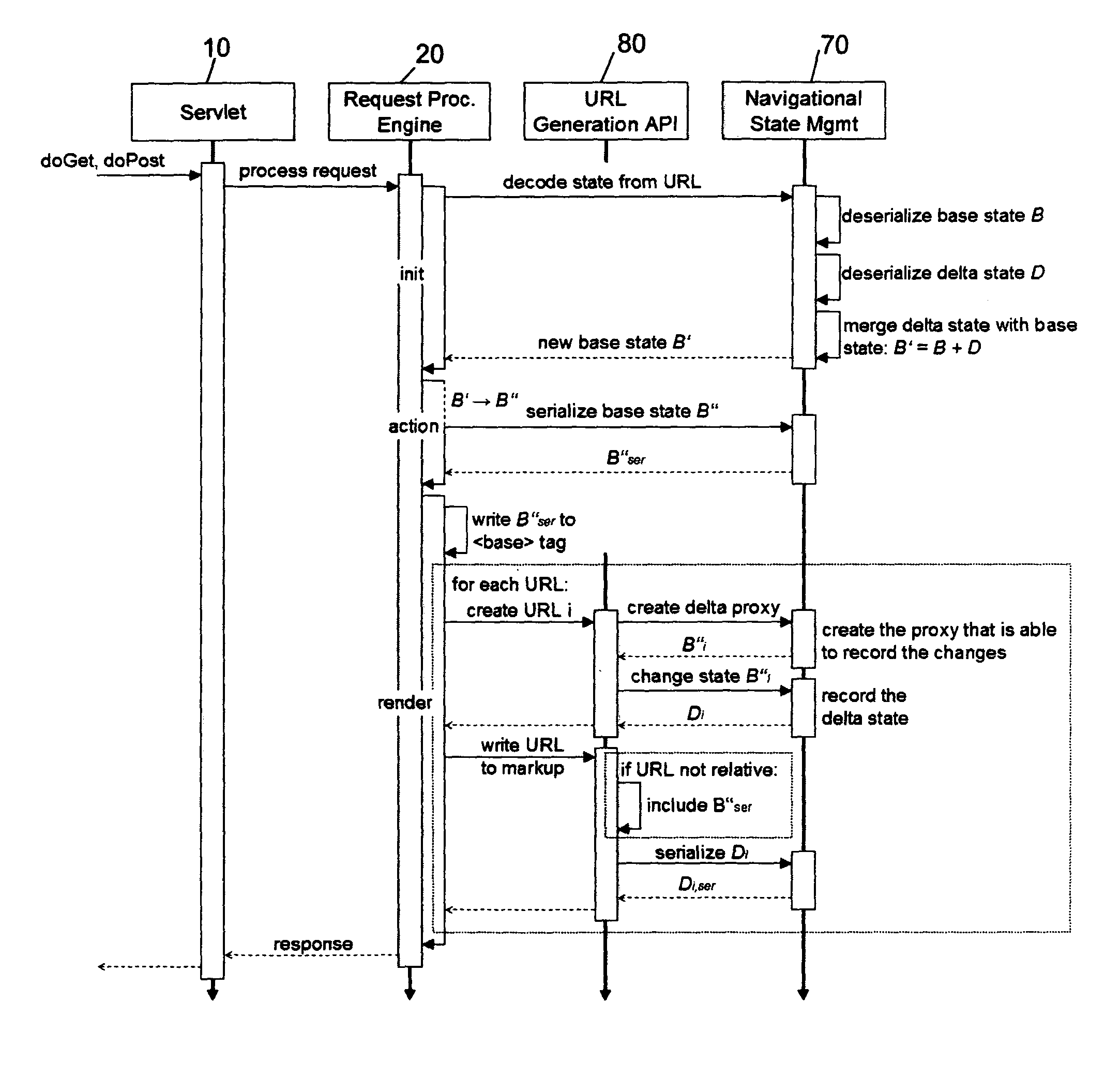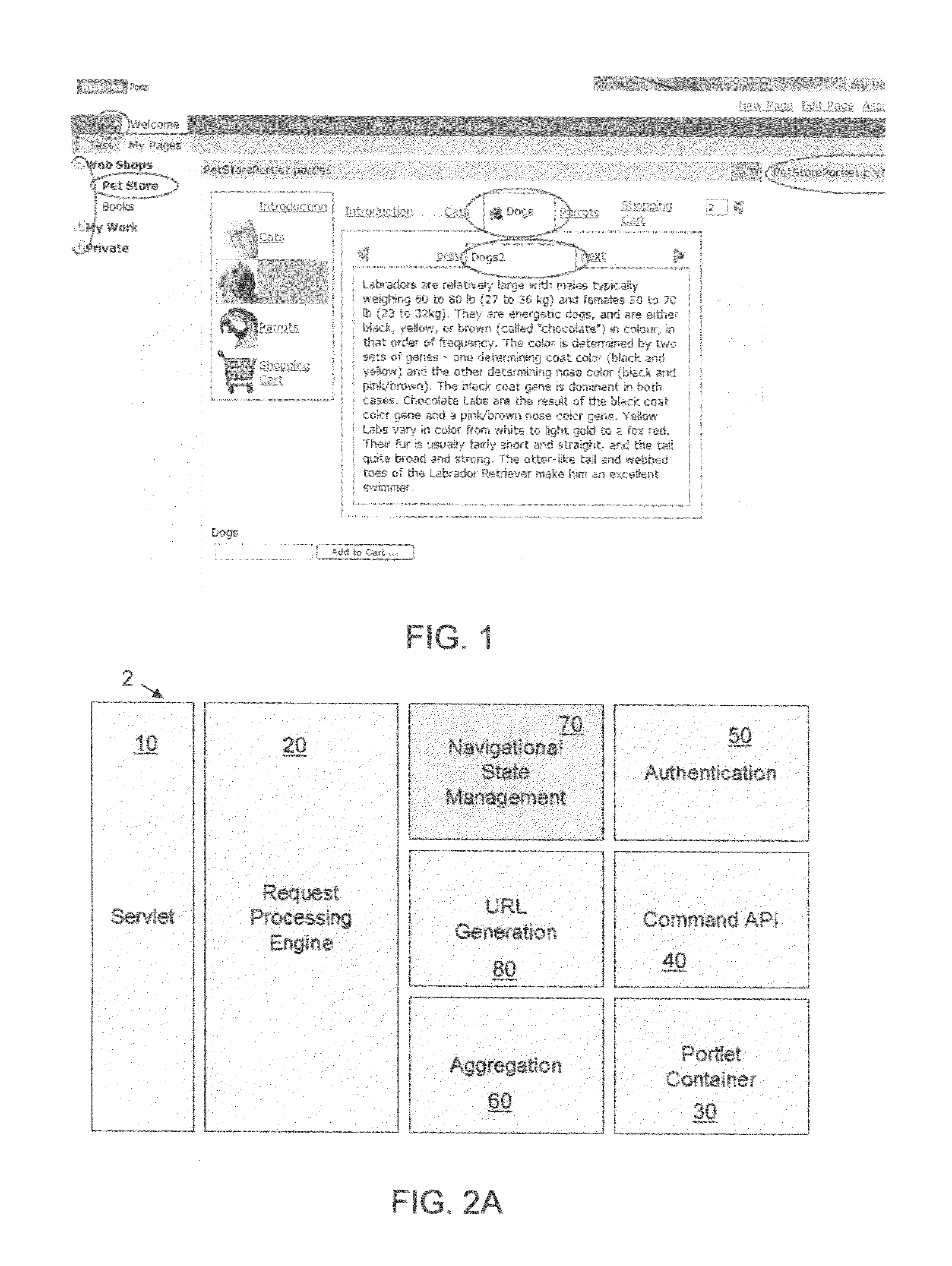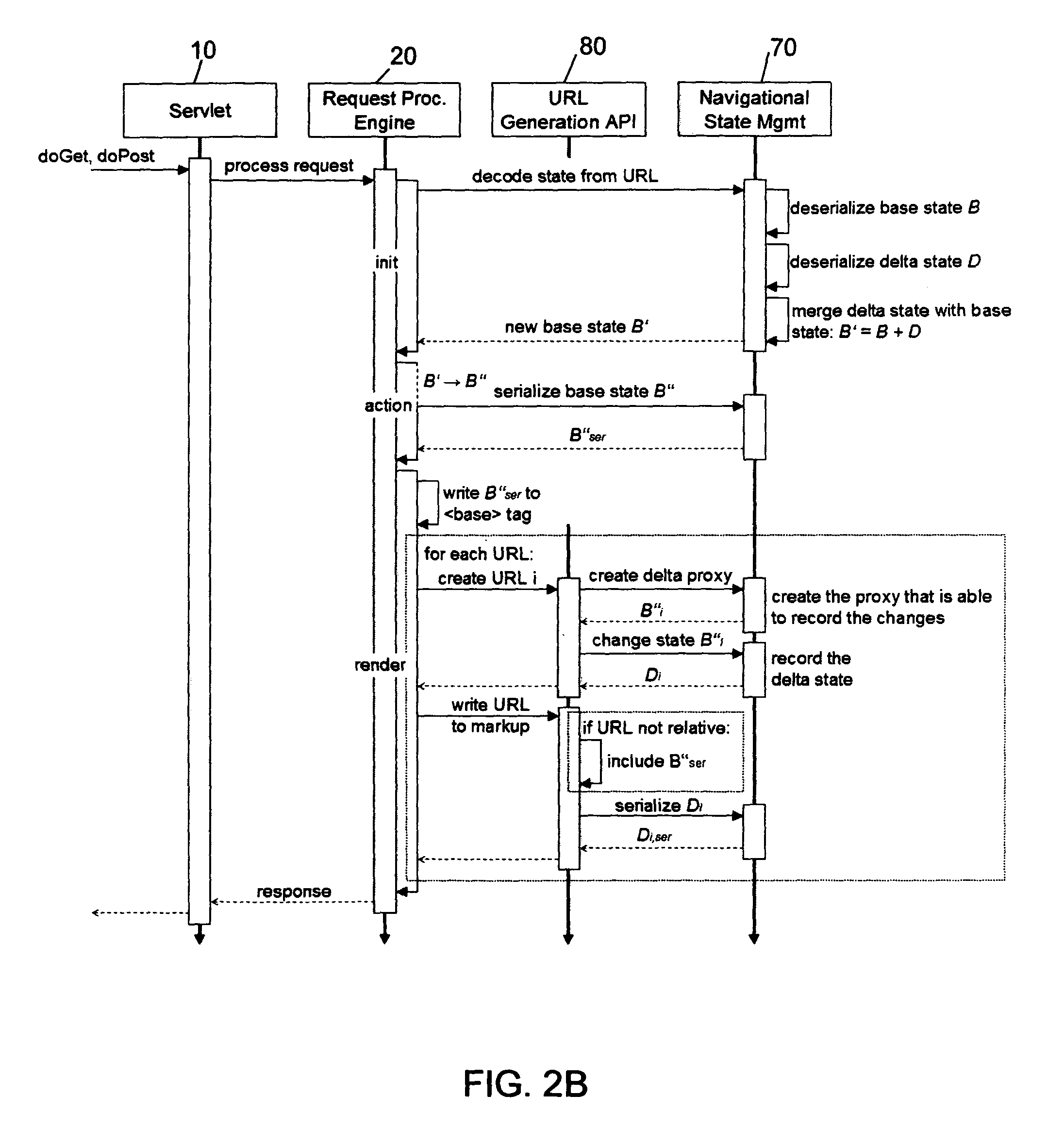Method and system for efficiently handling navigational state in a portal
a technology of navigational state and portal application, applied in the field of portal application efficiently handling navigational state, can solve the problems of browser bookmarks not working, navigating back and forward through recent views using the back and forward button of the browser, and both approaches have major drawbacks, so as to save processing time, efficiently handle navigational state, and serialize efficiently and compressed
- Summary
- Abstract
- Description
- Claims
- Application Information
AI Technical Summary
Benefits of technology
Problems solved by technology
Method used
Image
Examples
Embodiment Construction
[0025]Today's Web applications become more and more complex, in particular in the Portal environment where several components (Portlets) are combined into a larger Portal application. This leads to the problem that the navigational state “describing” a certain view of the Web application becomes quite voluminous. In the Portal scenario, for example, it must aggregate the navigational state of all portlets the user interacted with.
[0026]The invention provides a method for efficiently handling navigational state with following advantages compared to the prior art solutions:
Reduced Markup Size
[0027]Encoding the navigational state into each URL takes the risk of considerably increasing the size of the markup that has to be transferred to the client. That will be avoided by the present invention.
Reduced URL Length
[0028]Disregarding markup size it is also important to keep the single URLs as short as possible. HTTP limits the maximum length of an URL to 2 KB. If this limit is exceeded pro...
PUM
 Login to View More
Login to View More Abstract
Description
Claims
Application Information
 Login to View More
Login to View More - R&D
- Intellectual Property
- Life Sciences
- Materials
- Tech Scout
- Unparalleled Data Quality
- Higher Quality Content
- 60% Fewer Hallucinations
Browse by: Latest US Patents, China's latest patents, Technical Efficacy Thesaurus, Application Domain, Technology Topic, Popular Technical Reports.
© 2025 PatSnap. All rights reserved.Legal|Privacy policy|Modern Slavery Act Transparency Statement|Sitemap|About US| Contact US: help@patsnap.com



